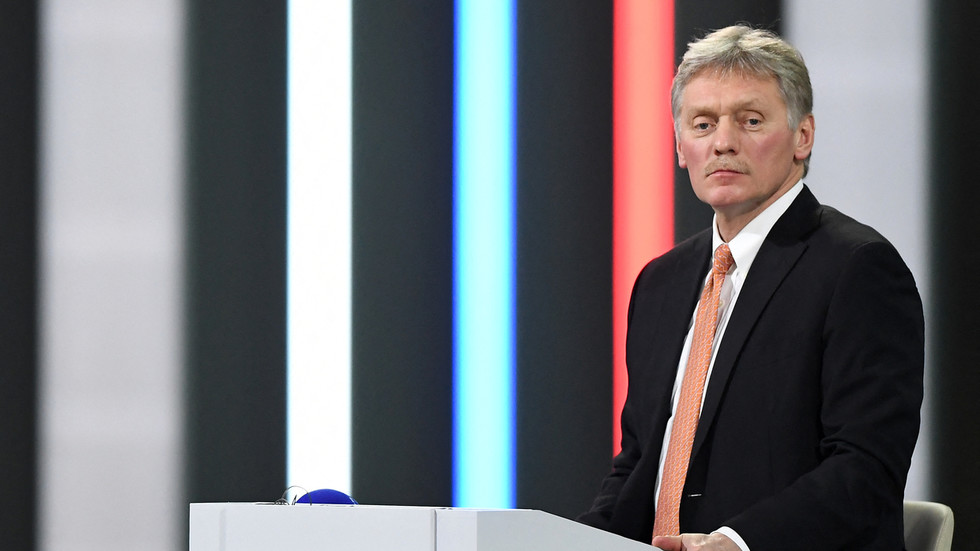
Spokesman Dmitry Peskov dismissed the German chancellor’s claim that restrictions on Moscow are becoming more effective

Kremlin spokesman Dmitry Peskov at an event in Moscow, December 2021.
The sanctions on Russia have backfired, hurting the German economy while Moscow has successfully adjusted to the challenges, Kremlin spokesman Dmitry Peskov has said, citing experts. He made the statement after German Chancellor Olaf Scholz wrote in an op-ed published in Foreign Affairs magazine last week that “sanctions would have to be in place for a long time, as their effectiveness increases with each passing week.”
“Of course, sanctions cause certain problems, but, so far, they have not been critical,” Peskov told reporters on Monday.
“So I would argue with Mr. Scholz. Experts are seeing that the Russian economy is adapting to [the new] conditions, and denying it would be unprofessional.”
Peskov added that “it would also be unprofessional to ignore the damage the sanctions are causing to European states.”

Read more
“The damage to the German economy is evident. Our experts, as well as experts in Brussels and Berlin, know this very well.”
After Russia launched its military operation in Ukraine in late February, many countries, including Britain, Canada, the US, and EU, froze Russian assets abroad and imposed sweeping restrictions on Moscow, targeting the financial sector and fossil fuel trade, among other things.
Russian Finance Minister Anton Siluanov said last week that the sanctions have had no effect on federal spending plans over the course of nine months, while the revenue from oil and gas exports has grown by 37%.
Germany implemented energy-saving measures in September, as the country braces for shortages and continues to grapple with high inflation. In November, food prices increased by 21% on average compared to the year before, while energy prices increased by 38.4%, according to government statistics.




